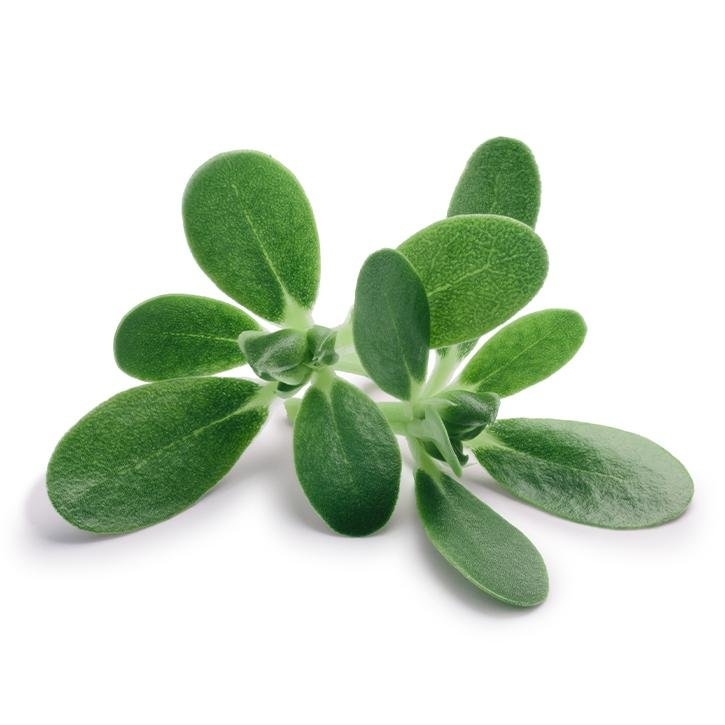Purslane is an edible annual herbaceous plant, belonging to the Portulacaceae family, small in size but highly resistant and adaptable, which is extremely easy to find in nature. Native to India and southern Europe, as far as Spain, it has naturalized all over the world. It is considered a creeping species that grows in vacant and uncultivated land. It invades orchards easily, so it is considered part of the weeds. It was already used in ancient times and some of its medicinal properties were known and some consider it a superfood due to its composition.
The aerial tops.
Different chemical compounds such as phenols, flavonoids, tannins, alkaloids, coumarins, cardiac glycosides, quinones, saponins and steroids have been identified in the leaves of purslane.
From a nutritional point of view, purslane leaves are also an important source of numerous nutrients. It stands out for its content in polysaccharides (mucilages), omega 3 fatty acids, proteins, vitamins: C, thiamine, riboflavin, nicotinic acid, alpha-tocopherol, beta-carotene; minerals: iron, magnesium, calcium, potassium, phosphorus, manganese, traces of copper and sulfur, abundant mineral salts, mainly oxalates (9.3%) and glutathione.
Currently, several researches have confirmed its antibacterial, antifungal, anti-inflammatory, analgesic, hypoglycemic, hypolipidemic, antioxidant, antitumor, antiulcerogenic and neuroprotective activity.
Diabetics, due to its hypoglycemic effect.
They have not been described.
At the recommended doses no side effects are expected.
-.Monografía de la SEFIT (Sociedad Española de Fitoterapia).
-.Mubashir H., Masoodi et al. Portulaca oleracea L. A review. Journal of Afrmacy Research 2011, 4 (9), 3044-3048.
-.Joshi, Dhiren M.; Dudhrejiya, Ashvin V. et al. Portulaca oleracea L.: a global panacea with ethnomedicinal and pharamcological potential. Pharma Science Monitor . Apr-Jun2017, Vol. 8 Issue 2, p583-602. 20p.
-.Trupti P. Durgawale, Chitra C. Khanwelkar et al. Comparative anthelmintic activity of different extracts of Portulaca oleracea L: whole plant. Biomedical and Pharmacology Journal. Vol. 10(4), 2013-2016 (2017).
-.Wainstein J, Landau Z, Bar Dayan Y, Jakubowicz D, et al. Purslane Extract and glucose homeostasis in adults with type 2 diabetes: a double-blind, placebo-controlled clinical trial of efficacy and safety. J Med Food. 2016 Feb;19 (2):133-40.
